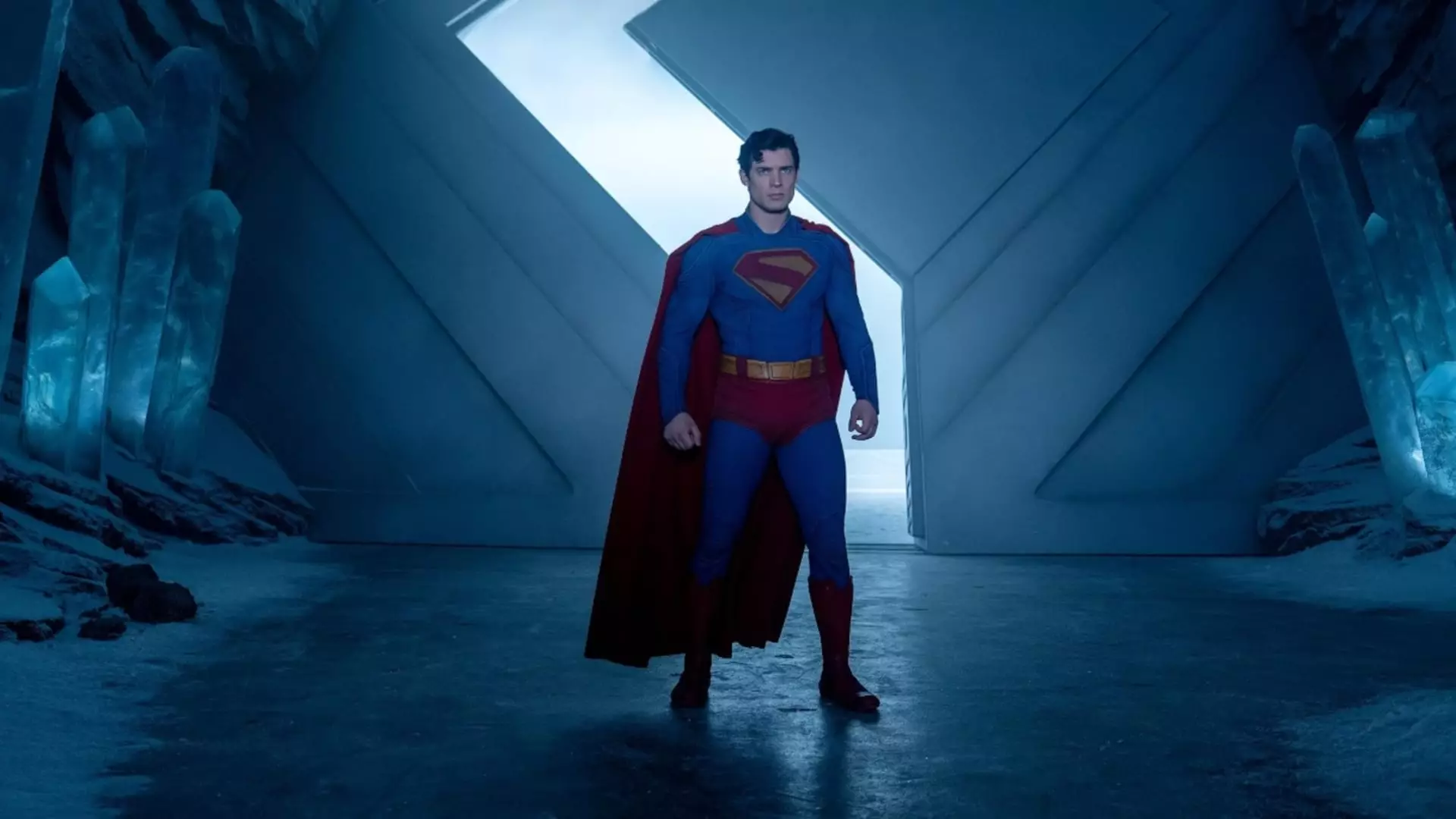The initial performance of Warner Bros.’ latest Superman film offers a tantalizing glimpse into the potential revival of the iconic superhero franchise. With a staggering $22.5 million from preview showings, it not only surpasses previous records but also ignites optimism that DC’s once-stagnant cinematic universe might be poised for meaningful resurgence. However, beneath these promising numbers lies a complex web of expectations, skepticism, and the high stakes of rebooting a mythos deeply ingrained in popular culture. A mere preview figure, after all, isn’t enough to guarantee sustained success.
While these early figures compare favorably with past superhero launches—being the third-best Thursday preview in DC’s history—there remains a lingering question: can “Superman” sustain momentum over the summer? Box office experts are cautiously optimistic, projecting a three-day opening of up to $140 million. Yet, history reminds us that initial enthusiasm often requires robust legs in theaters to translate into long-term profitability. Will this Superman film truly breathe new life into the franchise, or will it falter amidst high fan expectations and the fatigue of superhero saturation?
The Power Dynamics Behind the Reboot
Under the guidance of James Gunn and Peter Safran, Warner Bros. is attempting to carve out a fresh narrative path for DC—one rooted in hope, relevance, and explicit distinction from Marvel’s pervasive dominance. Their tenure signals a deliberate shift away from darker, grim-toned superhero stories foisted upon audiences over the past decade. Instead, they seek to reestablish Superman as an aspirational icon, while simultaneously reinvigorating the entire DC landscape.
This strategic overhaul, however, is fraught with risks. Marvel has monopolized the superhero genre’s cultural zeitgeist, leaving less room for DC’s more mythic and sentimental undertones to resonate. Gunn and Safran’s experience with Marvel’s success—like “Guardians of the Galaxy”—show their capability to craft resonant, character-driven narratives. But translating that success into the more sacred and universally beloved Superman brand demands deft storytelling, sensitive casting, and a clear vision that balances nostalgia with innovation.
Moreover, the long-term gamble hinges on broader audience engagement and the willingness of viewers to embrace a reimagined Superman. While critics have responded positively—an 83% rating on Rotten Tomatoes suggests a promising start—the true test lies in audience reception beyond initial reviews and into sustained box office performance. This reboot must prove it can compete not just with Marvel’s cinematic universe, but also with the entrenched expectations of fans who are wary of yet another iteration.
The Cultural and Political Underpinnings of a Hero’s Return
Superman has always represented more than just a superhero; he embodies ideals of hope, justice, and moral integrity, especially vital in turbulent times. In an era marked by political polarization and societal uncertainty, a fresh Superman can serve as a cultural touchstone—an aspirational symbol that transcends petty divisions and reminds us of common values.
From a liberal perspective, the challenge is to maintain that optimism without slipping into naive patriotism or simplistic hero worship. A nuanced portrayal that recognizes societal flaws while still holding onto the possibility of redemption aligns with a centrist-liberal ethos—one that believes in the power of narratives to inspire real change, rather than mere escapism.
The film’s success or failure will also influence how Hollywood perceives responsible storytelling—whether superhero cinema can genuinely contribute to cultural dialogue or simply reinforce consumerism. A well-crafted Superman film grounded in contemporary realities, yet optimistic about the future, can serve as a bridge between entertainment and meaningful societal reflection.
Future Outlook: Ambitions Clashing with Reality
While the early numbers hint at a promising trajectory, the long-term fate of this new Superman franchise remains uncertain. As Warner Bros. navigates the treacherous waters of franchise revitalization, they must address the broader question: Can they sustain what initially appears to be a promising reboot, or will they be yet another studio guilty of chasing temporary box office highs without cultivating lasting cultural impact?
This new Superman is not simply a film; it is an ideological gamble rooted in creative courage and strategic risk-taking. If it succeeds, it could herald a new era where DC not only competes but dynamically redefines its place in the superhero genre. But if it falters, it may reinforce the notion that these stories are, after all, ephemeral, susceptible to the tides of pop culture where only the most refined and meaningful narratives survive the test of time.


Leave a Reply